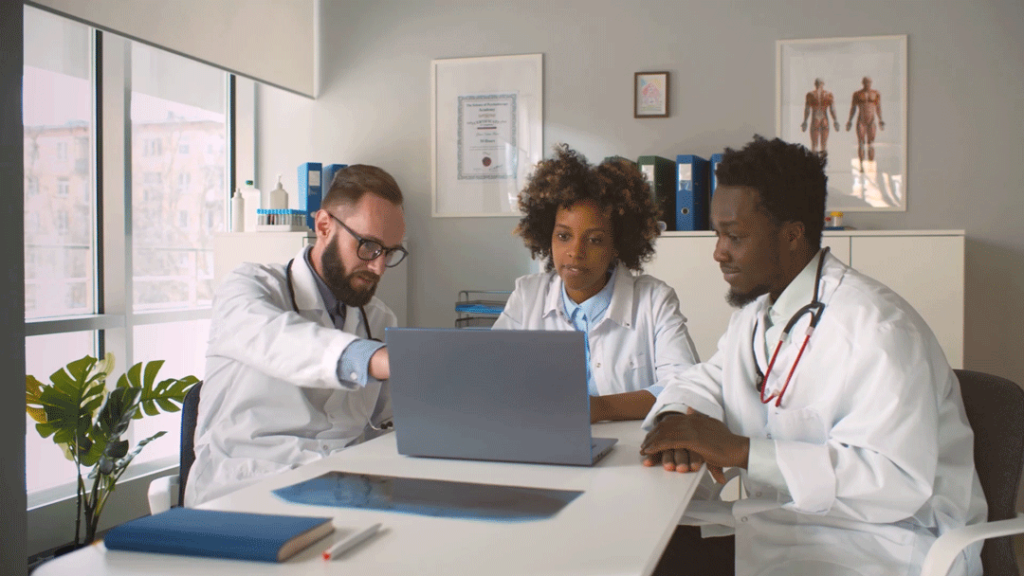Thanks to remote patient monitoring (RPM), clinicians can monitor patients’ health data in real time, no matter where they’re located. This technology offers numerous benefits, from the early detection of health issues, to reduced hospital admissions and enhanced care. However, if your practice wants to truly experience all that this technology has to offer, your staff members need to receive periodic training. Here are the main reasons why continuous education for remote patient monitoring is so important, and what options are available if this becomes too difficult to manage in-house.
Technology Updates
RPM devices and their software are both evolving at a rapid pace. New features, improved user interfaces, enhanced data analytics, and advanced integration are regularly being introduced — not to mention the billing codes that are likely to follow. Regular training and workshops are needed if healthcare professionals want to keep up with these changes.
Accurate Data Interpretation
The success of RPM largely depends on how well providers can evaluate the physiologic data shared by their devices. From blood pressure and glucose to heart rate, clinicians must be able to quickly review recorded vitals so that they can make more-informed clinical decisions.
Continuous education for remote patient monitoring helps nurses organize the RPM data that clinicians need in ways that reduce the chances of incorrect diagnoses, inappropriate treatment plans, and unnecessary hospital visits.
Clinical Guidelines and Compliance
Healthcare regulations, compliance standards, and clinical guidelines related to RPM are evolving along with its technology. Clinicians must be aware of these changes so that they meet all legal and ethical standards.
Regular training also keeps medical staff informed about the correct reimbursement codes for RPM so that they’re paid. CMS currently offers up to $120 per patient per month for those who qualify for a program.
Patient Engagement and Outcomes
Educated clinicians are better equipped to guide their patients on how to use their RPM devices correctly and effectively. When patients understand how to maintain their devices, and how their data affects their treatment plans, they’re more likely to engage with their own care and see improved health outcomes.
Workflow Efficiency
For RPM to be effective, it must be seamlessly integrated with existing clinical workflows. This includes documenting and evaluating patient vitals, and coordinating the appropriate care when those vitals indicate worsening conditions. Continuous education for remote patient monitoring helps clinicians review data quickly and accurately so that they can intervene when needed.
Troubleshooting Technical Issues
Nurses often serve as the first point of contact for patients experiencing technical difficulties with RPM devices. Education can equip them and other healthcare professionals with the knowledge they need to troubleshoot common technical problems, provide immediate support, and ensure that devices are functioning correctly. This minimizes disruptions to patient care and helps maintain patient confidence in the technology.
Is Continuous Education Too Difficult? Outsource RPM to Us
We understand that not all practices have the available staff or bandwidth to maintain all of these requirements for an RPM program in-house. That’s why we highly encourage them to outsource this service to a healthcare company that can.
TriageLogic’s turnkey RPM program includes reliable, HIPAA-compliant devices, as well as a team of triage nurses that can review patients’ recorded data and coordinate the appropriate care responses between them and their providers.
Let’s Talk About an RPM Program
Continuous education for remote patient monitoring is essential for providers and their teams to stay at the forefront of technology, provide high-quality care, and ensure compliance with all industry standards. But if it’s easier to have registered nurses who have already been trained on RPM manage this service on your practice’s behalf, we’d be happy to share what a customized program could look like!
Contact us today to learn more.
About TriageLogic
TriageLogic is a URAC-accredited, physician-led provider of top-quality nurse telehealth technology, remote patient monitoring, and medical call center solutions. Founded in 2007, the TriageLogic Group now serves more than 22,000 physicians and covers over 42 million lives nationwide.





